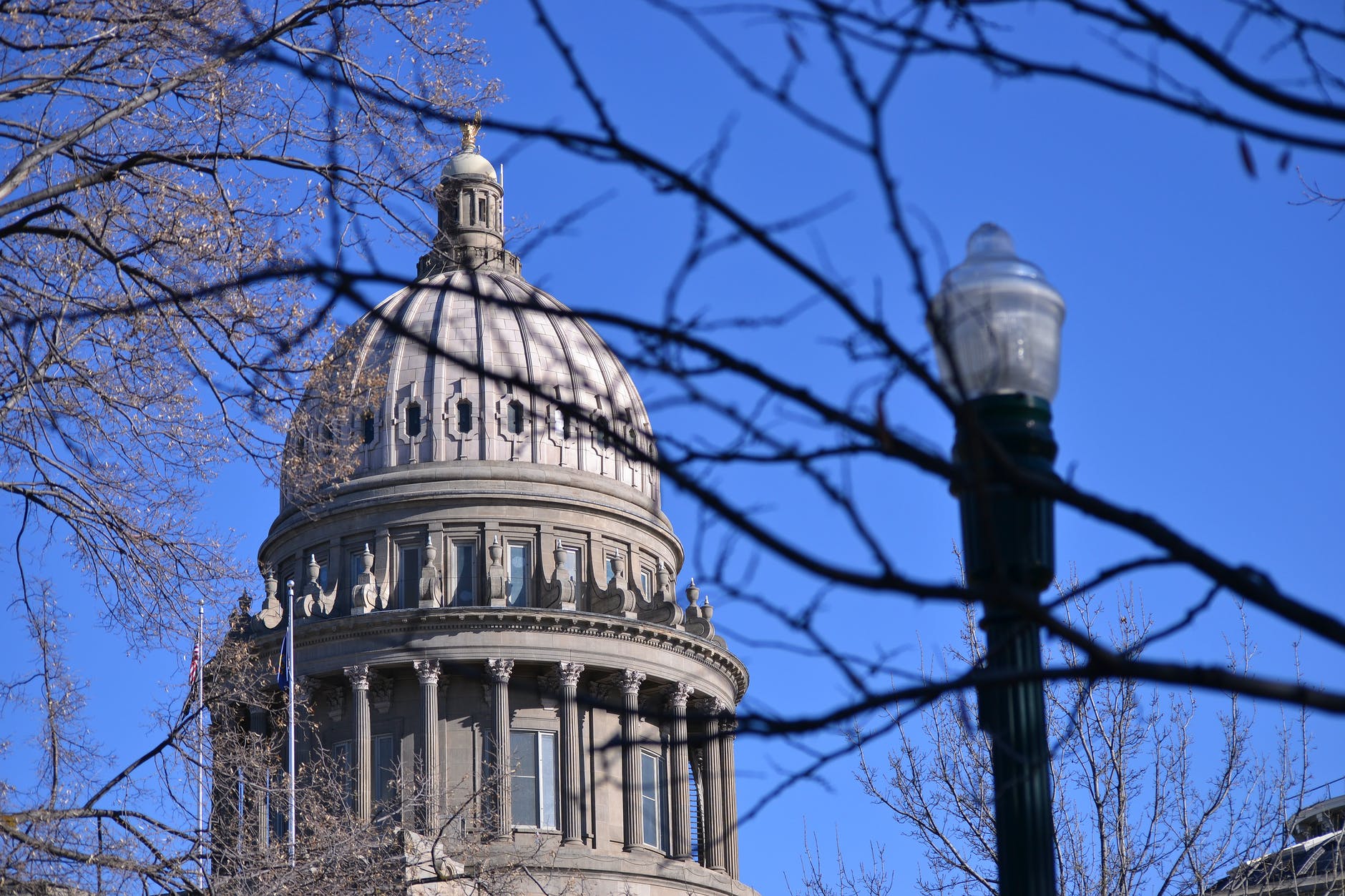Home » News » 2024 » September
News Brief
Sept. 24, 2024 |
By: Allison Kite - Missouri Independent
Cancer victims implore U.S. House to take up compensation for radiation exposure

By Allison Kite - Missouri Independent
U.S. House Speaker Mike Johnson is holding up compensation for generations of Americans who developed cancer after exposure to the nation’s nuclear weapons program, several members of Congress said Tuesday.
At a news conference in Washington, D.C, U.S. House members and Senators stood beside advocates from Missouri and tribal nations in the southwest who have — for months, or even years — cried out for help from the government as they and their loved ones suffered from cancer because of exposure to radiation.
Dawn Chapman, who lives near the contaminated West Lake Landfill in suburban St. Louis, said Johnson was the “only reason these people are suffering right now in this room.”
“He can fix it,” Chapman said. “There are a lot of things in this world that you cannot fix. This one can be fixed. This one can pass.”
Fred Vallo, who endured a 37-hour bus ride from New Mexico., said his community can’t keep coming to the nation’s capital “begging” for help. He urged Johnson to visit New Mexico and see where the contamination originated for himself.
“I’ll even take you with my own truck if you don’t believe us,” Vallo said.
Vallo and fellow advocates called on Johnson to bring the stalled Radiation Exposure Compensation Act up for a vote in the U.S. House of Representatives. The legislation has twice passed the U.S. Senate and would offer compensation to individuals suffering from certain cancers after exposure to improperly stored radioactive waste, uranium ore or bomb tests.
U.S. Sen. Josh Hawley, a Missouri Republican, who — along with New Mexico Democratic Sen. Ben Ray Luján — championed the legislation in the Senate, said he’d spoken with Johnson. But the House leader hadn’t committed to taking action on RECA.
Luján encouraged advocates to pray for Johnson “to give him the strength and the wisdom to allow this legislation to the House floor, to be voted on, and to work to earn Republican and Democratic votes to get this to the President of the United States.”
Johnson’s office declined to comment.
Congress first passed RECA in the 1990s to compensate uranium miners and individuals exposed to bomb testing, known as “downwinders,” but the program only covered bomb testing victims in parts of Nevada, Arizona and Utah.
Since the original RECA legislation passed, Hawley said, the radiation was found to have traveled further than the government originally thought. And communities that were known to be affected at the time were left out.
The expansion would offer coverage to downwinders in the remaining parts of Nevada, Arizona and Utah and expand coverage to Colorado, Idaho, Montana, New Mexico and Guam. It would also offer new coverage for residents exposed to radioactive waste in Missouri, Tennessee, Alaska and Kentucky.
In Missouri, uranium refining and improper storage of radioactive waste has affected residents for decades. Coldwater Creek, which runs for miles through busy St. Louis suburbs, is contaminated with radioactive material, and exposure to its waters increased the risk of cancer for generations of residents — primarily children.
Waste was haphazardly trucked from site to site in St. Louis county before being dumped at the West Lake Landfill where it remains today.
Hawley said he was confident there was enough support in the House of Representatives to pass RECA.
“The wait has been too long,” Hawley said, “and it has been too cruel. And there is no need to wait any longer.”
One family still suffering the effects of the bomb is Carol Rogers’.
Rogers, of Shiprock, New Mexico, said her father was a miner. She and her mother could see the gold-hued uranium ore falling from his clothes as they scrubbed them and wrung them out. At the time, she didn’t know helping wash her father’s clothes would cause her to develop cancer decades later.
When she was diagnosed, Rogers said, her doctor asked if she had worked with uranium. She said she hadn’t.
“Who did?” she said he asked.
“He said, ‘Yes, it’s uranium,’” Rogers said.
After treatment, she said, she was in remission from cancer for three or four years. It came back, affecting her eye. She’s currently undergoing radiation treatment.
“It’s painful,” Rogers said. “I have to take pain medicine almost every day, sometimes twice a day.”
Rogers said her father died of lung cancer. Her grandson was diagnosed with cancer at 19. Now 20, he’s going through testing again along with his one-year-old baby. Doctors have recommended, she said, everyone in her family get tested, even infants.
U.S. Rep. Gabe Vasquez, a Democrat from New Mexico, said the detonation of the world’s first atomic bomb at the Trinity Test site made it look like the sun rose over New Mexico at 3 a.m. one day in July 1945. And almost 80 years later, it’s still affecting New Mexican families.
“For too many decades, New Mexicans have suffered generational impacts,” Vasquez said, “while being gaslighted…for having intergenerational disease, cancer, gastrointestinal issues, tumors, so much more.”
![]()






